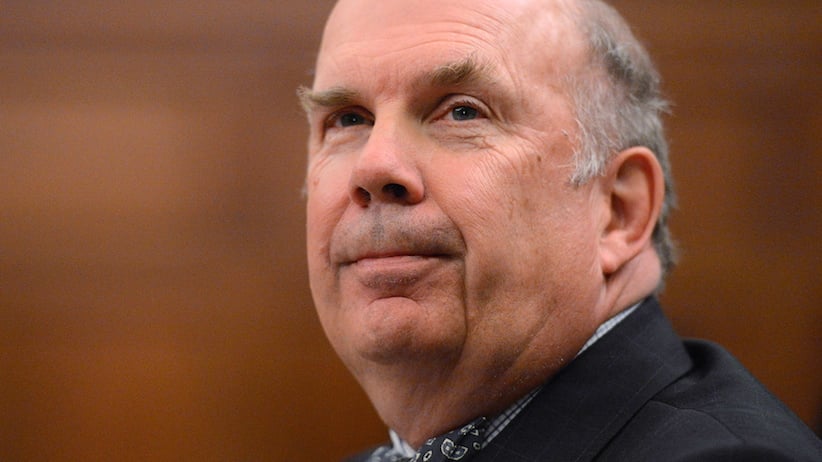Supreme Court decides Marc Nadon’s fate
Also in today’s news: Turkey blocks Twitter
Sean Kilpatrick/CP
Share

We tell you five things you need to know this morning.
1. The Supreme Court decides Marc Nadon’s future. Prime Minister Stephen Harper appointed Nadon, a semi-retired judge on the federal court, to the top court on Oct. 3. Immediately, loud corners of the country’s legal community erupted in protest and Harper asked the Supreme Court itself to rule on the matter. Quebec’s three judges typically rise from the province’s superior court, not a lower court—a practice that reaches to the Supreme Court’s very foundations. Quebec’s National Assembly unanimously opposed the appointment. Today, the top court delivers its ruling.
2. A Canadian died in Kabul. Taliban fighters unleashed a deadly attack on a luxury hotel in Afghanistan’s capital that’s supposed to be relatively safe from such danger. Nine died at the Serena Hotel when four Taliban, apparently teenagers, snuck in with pistols hidden in their shoes and opened fire. The hotel was popular with foreign visitors, including an unidentified Canadian woman who, according to the Afghan interior ministry, lay among the dead.
3. Françoise David won Quebec’s leaders’ debate. Seriously. Just ask Maclean’s correspondent Martin Patriquin, or political editor and debate liveblogger Paul Wells. David co-leads Quebec Solidaire, a left-wing party that stands zero chance of winning the ongoing election. She was at relative ease on stage, with little to gain or lose. The debate itself likely moved few votes. Premier Pauline Marois and Liberal challenger Philippe Couillard each stood their ground. And David, who won’t win when it counts, gets to enjoy a small victory.
4. Turkey blocks Twitter. Tayyip Erdogan, the country’s prime minister, claims his opponents have spread false allegations of corruption on the popular social network and, as a result, disallowed any Turkish user from accessing the site. Turkish government officials confirmed the move. Ten million users live in Turkey. Banning them all from using Twitter because of the actions of a few—illegal according to the government, but nothing’s proven either way—may not be so proportionate a response.
5. Thailand’s last election was invalid. That’s the opinion of a Thai court, which ruled that the parliamentary election ostensibly held on Feb. 2 wasn’t actually conducted on the same day across the country. The vote, boycotted by opposition parties, carried on despite anti-government protests at some polls. Protesters want the government to resign in favour of a people’s council, and they threatened to disrupt voting again when another election is scheduled.